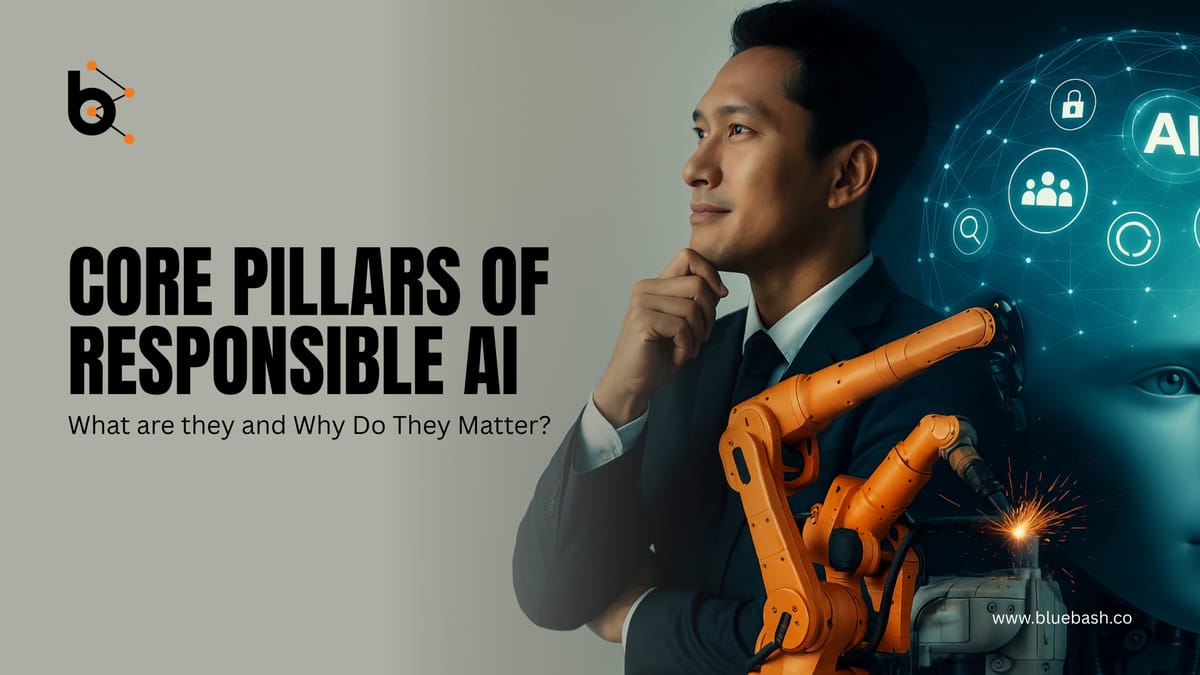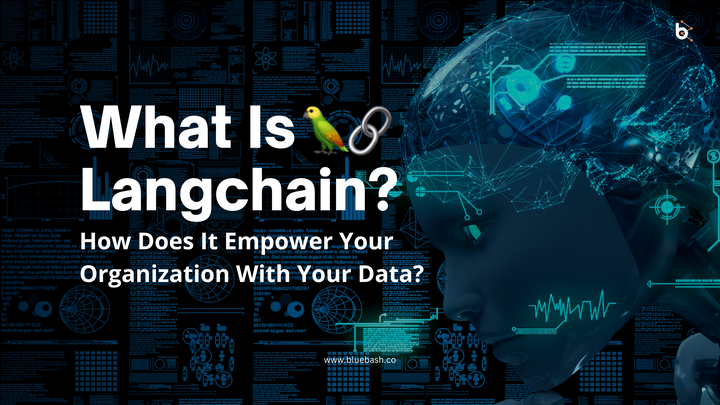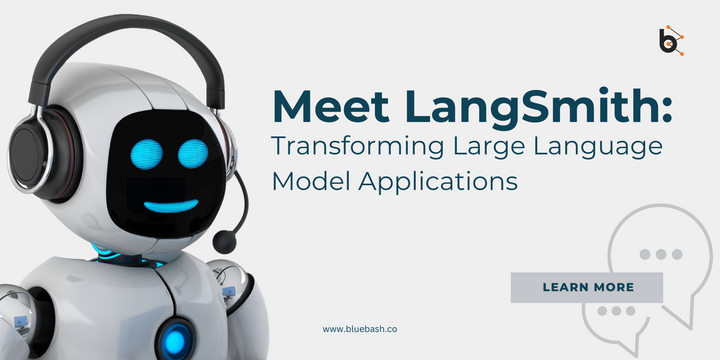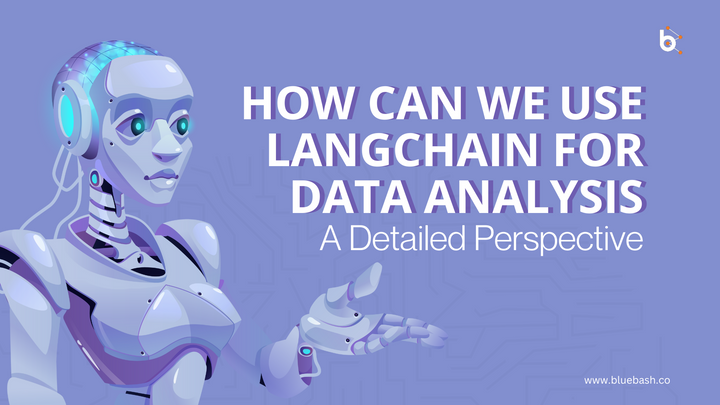What Are the Core Pillars of Responsible AI and Why Do They Matter?

As artificial intelligence (AI) becomes increasingly embedded in our daily lives—from personalized healthcare assistants to automated hiring systems and AI agents with ethical decision-making capabilities—questions around its responsible use are more urgent than ever. Businesses, developers, and policymakers alike are asking: how can we ensure that AI systems are fair, accountable, transparent, and aligned with human values?
This is where the core pillars of responsible AI come into play.
In this Blog, we’ll explore what responsible AI actually means, outline the fundamental principles that guide its development and deployment, and explain why these principles are vital in the real-world context of business, governance, and society.
Why Responsible AI Matters Today?
AI is no longer a science-fiction-like thing, but instead, it is a working reality. AI is transforming companies by making them smarter in their decisions and provide enhanced services which range to automation of customer support to processing millions of data in a matter of seconds. Nonetheless, the problem with uncontrolled AI may also include the biased results, privacy exposure, and even the potential of serious consequences.
The principles of responsible AI are aimed toward supporting optimal development, and the argument is that as we gain speed in innovation, we are to remain true to the ethics, the law and society.
In the case of businesses, responsible AI governance framework is not a matter anymore of keeping to the letter of the law, but an entire systemic action that creates a degree of trust, a future reduction in risk-taking, and promotes innovation anchored in integrity.
Core Pillars of Responsible AI
Responsible AI isn’t a buzzword—it is built on actionable pillars that guide the development, deployment, and governance of AI systems. Here are the five core pillars:
- Transparency
AI systems must be understandable to those who develop, regulate, and are impacted by them. This doesn’t mean revealing trade secrets, but it does mean:
- Documenting how AI models are trained.
- Explaining how decisions are made (especially in high-stakes areas like healthcare or finance).
- Ensuring users and stakeholders can question or appeal decisions.
In the absence of transparency, AI end-users and regulators will not be able to trust the decisions made by such systems. Responsible decision-making AI agents should be the ones that give good sense of why it is taking that action, and it can be in loans approval, or medical recommendations.
- Fairness and Inclusivity
AI must treat individuals and groups fairly, without amplifying existing biases or creating new ones. Fairness means:
- Ensuring there is diversity of the datasets so as to prevent discrimination.
- The frequent audit of models that deliver biased results.
- Learning about AI deployement in cultural and regional differences.
Caused by bias in AI, its results can be disastrous. As an example, an AI involved in the recruitment process and trained using biased data in the past might discriminate some groups based on their age, race, sex, or other factors, and disfavor others. That is why the principle of fairness is one of the non-negotiable values of AI agents with ethical reasoning.
- Accountability
Who is responsible when AI goes wrong?
- The design has to be the responsibility of the developers.
- There should be appropriate deployment and use by the businesses.
- There is the need to establish rules that should be enforced by governments and regulators.
An important factor in responsible AI in business is constituting governance mechanisms, roles and responsibilities and redressal processes. When an AI-based system rejects a claim related to healthcare, there should be a human review and responsibility.
- Privacy and Security
AI systems often rely on personal data, making data governance a critical aspect of responsible AI. This includes:
- Data minimization and anonymization.
- User consent and control over their data.
- Securing AI systems from external threats or misuse.
The AI governance framework must protect users’ rights while maintaining system robustness against breaches or attacks.
- Human-Centered Design
AI should complement human decision-making, not replace it. This pillar ensures:
- Human-in-the-loop systems for critical decisions.
- Tools that empower rather than alienate users.
- Respect for human dignity, rights, and freedoms.
By designing AI that augments rather than overrides human agency, we build systems that are more intuitive, empathetic, and widely accepted.
Principles of Responsible AI: Building a Strong Foundation
These five pillars translate into practical principles of responsible AI that businesses and developers can follow:
- Do No Harm: Minimize the risk of negative consequences.
- Explainability: Make AI decisions interpretable to end users.
- Sustainability: Ensure AI development aligns with environmental and social goals.
- Continuous Monitoring: Implement tools and policies for ongoing evaluation.
- Inclusivity: Involve diverse stakeholders in the design process.
These principles guide AI agent development services to create solutions that are not only powerful but also principled.
Why These Pillars Matter for Business?
Integrating the core pillars of responsible AI into your operations isn’t just the right thing to do—it’s smart business. Here’s why:
- Regulatory Compliance
Countries and governments are in the direction of regulation of AI (e.g. the EU AI Act). Embracing responsibility AI early will also futurify your business and help this reduce regulatory risk. - Reputation and Trust
The ethical aspects of AI are making more and more consumers, partners, and employees aware of them. Brands that are perceived to be ethical have a higher level of customer loyalty and the commitment of investors. - Innovation with Integrity
The propositions of responsible AI frameworks promote innovations by motivating exploratory work within ethical and safe confines. The fear of a bad reputation or backlash is also not an issue as businesses can test out AI. - Operational Efficiency
Prior governance integration is cost-effective as far as it saves time and money. Testing of ethical or technical problems in an early stage will prevent high fixing in the future.
How to Implement Responsible AI Practices?
Implementing responsible AI is not a one-time checklist—it’s an evolving commitment. Here are steps to get started:
Step 1: Define an AI Governance Framework
Build multidisciplinary AI team including engineer, ethicist, a lawyer, and stakeholders. This group of people should be able to set and revise the principles behind the AI usage at your organization.
Step 2: Build Ethical Risk Assessments Into AI Lifecycle
Perform an assessment of risks at data collection, training of the models, deployment, and oversight on how it is put into practice. Apply such tools as model cards, fairness dashboards, and audit trails.
Step 3: Empower Developers With Ethical Toolkits
Provide your engineering teams with tools and frameworks along with with guidelines so that they can incorporate fairness, explainability and accountability into the workflow.
Step 4: Engage Stakeholders and End Users
Put users, and community representatives in charge of testing and validating AI systems. Their contribution to it means that the AI will not only be technically correct but also socially acceptable.
Step 5: Establish Feedback Loops and Monitoring
AI systems also require constant monitoring even once deployed. To detect drift or misuse, establish periodic reviews, forums of user inputs and real-time monitoring.
This is where expert AI agent development services become invaluable. They bring both the technical expertise and ethical insight needed to build systems that align with the principles of responsible AI.
Real-World Examples: Responsible AI in Action
- Healthcare: A health AI diagnostic tool involves the use of explainable decision trees and has a human doctor in every crucial decision. This is a combination of automation and supervision that mirror accountability and transparency.
- Finance: An AI system used in approving loans is audited every quarter to ensure no bias toward the protected groups of people, which acts in favor of equity and management.
- Ecommerce: AI agents making the personalized recommending are finally trained on only anonymized opt-in data, and ethical privacy and trust are maintained.
These use cases show how AI agents with responsible decision-making are not only possible—they’re already here and thriving.
Why Choose Bluebash for Responsible AI Development?
When it comes to building ethical, transparent, and reliable AI systems, Bluebash brings the right mix of experience, values, and technical skill. Here's why businesses trust us to lead their responsible AI initiatives:
- Ethics-Driven AI Agent Development
We build AI agents that make decisions you can stand behind. From day one, we focus on fairness, accountability, and aligning AI behavior with your values—not just technical performance. - Built-In AI Governance Framework
We don’t treat governance as an afterthought. Our projects include structured processes for risk evaluation, bias checks, and regulatory compliance to ensure your AI stays responsible at every stage. - Human-Centered Design Approach
People come first. Every solution we build is designed with real users in mind—making AI intuitive, explainable, and built to assist, not replace, human judgment. - Cross-Industry Expertise
Whether it's healthcare, finance, SaaS, or retail—we understand the unique needs of each industry. Our AI solutions are customized for impact and compliance in your specific domain. - Continuous Monitoring & Risk Management
We don’t disappear after deployment. Our team supports your AI long-term with ongoing performance monitoring, fairness audits, and proactive updates to keep your system aligned and safe.

Final Thoughts: Responsible AI Is the Future of AI
The core pillars of responsible AI aren’t just guiding principles—they are business imperatives. In a world where AI impacts everything from who gets a mortgage to how we receive healthcare, ethical and responsible development isn’t optional. It’s essential.
Whether you're building your first chatbot or deploying AI to analyze medical images, your success will increasingly depend on how responsibly your systems behave. Embedding these principles into your AI agent development services ensures that your AI works for people, not against them.
At Bluebash, we help businesses turn these principles into action—creating AI systems that are not only smart but also trustworthy, fair, and human-centered.
FAQ's
- What are the main pillars of responsible AI?
The five core pillars are transparency, fairness, accountability, privacy and security, and human-centered design. These guide ethical and effective AI use. - How does responsible AI benefit my business?
It helps build trust with customers, reduces legal and ethical risks, ensures regulatory compliance, and supports sustainable innovation. - Can AI systems be both powerful and ethical?
Absolutely. Responsible AI practices ensure that high-performance systems also make fair, transparent, and human-aligned decisions. - What is an AI governance framework?
An AI governance framework is a set of policies, roles, and processes that guide ethical AI development, deployment, and monitoring in a business. - How can businesses ensure AI systems make ethical decisions?
By training models on unbiased data, involving human oversight, and applying responsible AI principles like transparency and fairness throughout the AI lifecycle.



